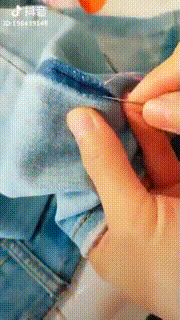🗣️ PSA
🗣️ PSA
if ur a pixel artist or u use instagram please be wary of this account @pixel___art__._



they’ve not only stolen pixel art from a LOT of artist (including myself and @waneella) but they’re claiming to be the artist behind the artwork. it’s just so wildly cringe lmfaooo but please block them so you don’t accidentally interact with this account, thank you!! 🖤


More Posts from Enbylvania65000 and Others
My old person trait is that I think a website should work in a web browser and not try to open an app
Now I feel bad doing absolutely nothing
Let aeniith be an inspiration to us all.
Conlangs in 2021
I usually try to keep my “resolutions” for the new year realistic, and think of them more as goals. I always like to have goals, and the new year gives me a convenient (if artificial) turning point that reminds me to consider and perhaps update my goals, especially those that are accomplishable over the period of about a year or so. A few of my conlang and worldbuilding goals for 2021 are: - Revise Rílin and Karkin grammars
- Add Ori to the website
- Add to Tosi grammar (it’s so barebones)
- Figure out how Gotevian/Lomi/other languages in Quarios are written.
- More music in Aeniithian conlangs! I recorded a few songs in 2019 in Rílin, Tosi, and Gotevian, and I want to do more.
- Record spoken audio stories that add to Aeniith worldbuilding (narrated exploration, in a sense)
- Do more drawings/paintings/visual designs related to Aeniith
- Fill out my flora and fauna collections and get them on the website Do you have any goals related to worldbuilding, writing, conlanging, or creation in general?
The Early Therocene: 30 million years post-establishment

The Tooth Hurts: The Saber-Toothed Daggarat
The mison of the continent of Ecatoria, unlike their relatives in Westerna and Nodera, evolved a pair of prominent tusks as additional defenses against the unique native predators of the Ecatorian continent: the hamyenas. However, not even this would be enough, as eventually in the Early Therocene one species of hamyena eventually evolves to specifically prey upon mison: the saber-toothed daggarat (Smilocynomys scmitarodon).
Roughly the size of a Great Dane, the daggarat is the largest member of a group of distinctly canid-like hamyenas, the zingos. Specialized for running after prey on the open plains, they usually preyed upon smaller quarry such as boingos and hamtelopes, but the arrival of the mison from the northern continent of Westerna 5 million years ago set their sights on new prey -- and more specialized weaponry for tackling larger game.
The daggarat, like all hamyenas, sports a single long 'fang' made from the fusion of its upper incisors into a single stabbing point. However, in the daggarat, this fang can reach a length of up to six inches, and protrudes out of the mouth when the mouth is closed, to avoid injuring its own gums and lips. Hardened enamel protects the modified incisor from damage despite its exposure, and is strengthened with iron much like those of a beaver's teeth, which also grants it a distinctive orange hue. But unlike beaver teeth, the fang of the daggarat is not used for gnawing wood -- but for piercing through hide and flesh.
The primary hunting tactic of the daggarat is through persistence, singling out a straggler from a herd of mison and ambushing it. Able to open its jaws to a frightening 120 degrees, the daggarat quickly lunges in, stabs a few deep wounds into the mison intended to puncture large arteries, and promptly retreats, as an injured mison can easily trample and kill them in its panic. The daggarat then sits back and waits for the mison to move on, before harassing and wounding it again when it stops to rest or drink, putting up a prolonged cycle of attack, retreat, wait and attack once more, a process which can last as long as two to three days until exhausted and wounded, the mison finally succumbs to its injuries and the daggarat is rewarded for its patience with a huge food source that can last it for days.
Daggarats typically hunt in pairs, usually a mated couple, which cooperatively hunt together and aid one another in bringing down their large prey, and share the same den when they shelter at night. The pair are very closely bonded and rarely leave each other's side, and typically mate for life: only taking a new mate should their previous one die. The pair can produce a litter of three to five pups each breeding season (usually every two to three years), which the couple take turns caring for for at least ten months until they are weaned: by then, the father chases off the male offspring to fend for themselves, but female pups stick around for up to two years-- during which the resulting larger pack when hunting with their parents allows them a greater chance of success in quickly making a kill.
▪▪▪▪▪▪▪▪
This point cannot be emphasised enough. I would never have been able to make any grammar at all without doing things this way.
Constraints are an amazing tool that actually make you more creative. Instead of trying to give your language ALL OF THE FEATUREs, try putting more constraints on it.


Curious about how NASA will land the next mission to the Red Planet – the Perseverance Mars rover? Here’s your chance to ask our expert!
After nearly 300 million miles, our Perseverance rover completes its journey to Mars on Feb. 18. To reach the surface of the Red Planet, it has to survive the harrowing final phase known as Entry, Descent, and Landing. Mission engineer Chloe Sackier will be taking your questions in an Answer Time session on Thursday, Feb. 4 from noon to 1pm ET here on our Tumblr! Make sure to ask your question now by visiting http://nasa.tumblr.com/ask.
Chloe Sackier is a systems engineer at NASA’s Jet Propulsion Laboratory (JPL) in Southern California. She works on the Mars 2020 Entry, Descent and Landing team, tasked with safely delivering the Perseverance rover to the surface of Mars.

Landing Perseverance on Mars – fun facts:
The landing system on the mission includes a parachute, descent vehicle, and an approach called a “skycrane maneuver” for lowering the rover on a tether to the surface during the final seconds before landing.
Perseverance will use new technologies for landing, including Terrain-Relative Navigation. This sophisticated navigation system allows the rover to detect and avoid hazardous terrain by diverting around it during its descent through the Martian atmosphere.
A microphone allows engineers to analyze entry, descent, and landing. It might also capture sounds of the rover at work, which would provide engineers with clues about the rover’s health and operations.
Make sure to follow us on Tumblr for your regular dose of space: http://nasa.tumblr.com.



I really don’t like when jokes revolving around misinformation on an obscure or niche topic don’t include a label to say it’s a joke. It’s gaslighting people or misinforming those who never read on the topic before.
a lot of you hate historians and archaeologists, and i think that’s a problem
look, i fully recognize that there are reasons to be skeptical of history and archaeology. i am very on board with criticizing academia as an oppressive institution, and the way that researchers take their bigotry and bias with them to their work. i also recognize that academia does a pretty bad job of communicating what it does to the public, and that’s a part of why people’s hostility to it is able to flourish.
but i am disturbed by the pervasive narrative in online leftist spaces that people who research the human past are ignorant and bigoted, and i think we need to do more to combat that narrative.
historians being homophobic has become a whole meme, and it feels like people are just using historians as a homophobia scapegoat, when in reality the humanities are overwhelmingly left-leaning. people also keep blaming historians for erasing the homoeroticism of fictional literary characters, which is just… not what historians do. homophobic biases and erasures in the interpretation of history over the past few hundred years are a very real thing that’s important to learn about, but scholars have radically shifted away from that approach in recent generations, and these memes are not helping people outside the field to understand history and reception. instead, a lot of people are coming away with the impression that…

(source… really? nobody?)
this thread gets bonus points for the comments claiming that modern historians argue about whether achilles was a top or a bottom using homophobic stereotypes, which i can only guess is a misunderstanding of the erastes/eromenos model (a relationship schema in classical greece; i think people have debated whether achilles and patroclus represent an early version of it). also a commenter claims that the movie troy invented the idea of achilles and patroclus being cousins when no, they were also cousins in lots of ancient sources.
there’s this post about roman dodecahedra (link includes explanation of why the original post is misleading).
there’s this thread about how some thin gold spirals from ancient denmark look exactly like materials used in gold embroidery to this day but archaeologists are stupid and don’t know that because they dont talk to embroiderers enough. in fact, the article says they were most likely used for decorating clothing, whether as a fringe, braided into hair, or embroidered. so the archaeologists in the article basically agree with the post, theyre just less certain about it, because an artifact looking similar to a modern device doesn’t necessarily mean they have identical uses.
this thread has a lot of people interpreting academic nuance as erasure. the museum label literally says that this kind of statue typically depicts a married couple, giving you the factual evidence so you can interpret it. it would be false to say “these two women are married” because there was no gay marriage in ancient egypt. (interpreting nuance as erasure or ignorance is a running theme here, and it points to a disconnect, a public ignorance of how history is studied, that we can very much remedy)
lots of other conspiracy theory-ish stuff about ancient egypt is common in social justice communities, which egyptologists on this site have done a good job of debunking
oh, and this kind of thing has been going around. the problem with it is that there are loads of marginalized academics who research things related to their own lives, and lived experience and rigorous research are different forms of expertise that are both valuable.
so why does this matter?
none of these are isolated incidents. for everything i’ve linked here, there are examples i havent linked. anti-intellectualism, especially against the humanities, is rampant lately across the political spectrum, and it’s very dangerous. it’s not the same as wanting to see and understand evidence for yourself, it’s not the same as criticizing institutions of academic research. it’s the assumption that scholars are out to get you and the perception that there is no knowledge to be gained from thorough study. that mindset is closely connected to the denial of (political, scientific, and yes historical) facts that we’ve been seeing all around us in recent years.
on a personal note, so many marginalized scholars are trying to survive the dumpster fire of academia because we care that much about making sure the stories that are too often unheard don’t get left out of history… and when that’s the entire focus of my life right now, it’s disheartening to see how many of my political allies are just going to assume the worst about the entire field
-
 chxrryvlossom liked this · 5 months ago
chxrryvlossom liked this · 5 months ago -
 awildkelkinnie liked this · 10 months ago
awildkelkinnie liked this · 10 months ago -
 miaqc1 reblogged this · 11 months ago
miaqc1 reblogged this · 11 months ago -
 bee-unknown liked this · 1 year ago
bee-unknown liked this · 1 year ago -
 girlfromnarniablog liked this · 1 year ago
girlfromnarniablog liked this · 1 year ago -
 social-disaster liked this · 1 year ago
social-disaster liked this · 1 year ago -
 automaticstarlightcomputer liked this · 1 year ago
automaticstarlightcomputer liked this · 1 year ago -
 writingwithcatears reblogged this · 1 year ago
writingwithcatears reblogged this · 1 year ago -
 roseverdict liked this · 1 year ago
roseverdict liked this · 1 year ago -
 disastrousfeline liked this · 1 year ago
disastrousfeline liked this · 1 year ago -
 echoesofreverie liked this · 1 year ago
echoesofreverie liked this · 1 year ago -
 audhdgoku liked this · 1 year ago
audhdgoku liked this · 1 year ago -
 13moons-and-a-single-sun liked this · 1 year ago
13moons-and-a-single-sun liked this · 1 year ago -
 aquastrom liked this · 1 year ago
aquastrom liked this · 1 year ago -
 lizardofanarchy liked this · 1 year ago
lizardofanarchy liked this · 1 year ago -
 to-move-on-means-to-grow liked this · 1 year ago
to-move-on-means-to-grow liked this · 1 year ago -
 lesbian4nami liked this · 1 year ago
lesbian4nami liked this · 1 year ago -
 beluhblogs liked this · 1 year ago
beluhblogs liked this · 1 year ago -
 kosmickraken reblogged this · 1 year ago
kosmickraken reblogged this · 1 year ago -
 kosmickraken liked this · 1 year ago
kosmickraken liked this · 1 year ago -
 freewingedwolf liked this · 1 year ago
freewingedwolf liked this · 1 year ago -
 mostcertainlynotcis reblogged this · 1 year ago
mostcertainlynotcis reblogged this · 1 year ago -
 sweetsuke liked this · 1 year ago
sweetsuke liked this · 1 year ago -
 theraconteur1-blog liked this · 1 year ago
theraconteur1-blog liked this · 1 year ago -
 blueinkedcrowling liked this · 1 year ago
blueinkedcrowling liked this · 1 year ago -
 megalunalexi-aesthetic liked this · 1 year ago
megalunalexi-aesthetic liked this · 1 year ago -
 the-east-hunter reblogged this · 1 year ago
the-east-hunter reblogged this · 1 year ago -
 toastmgoats reblogged this · 1 year ago
toastmgoats reblogged this · 1 year ago -
 toastmgoats liked this · 1 year ago
toastmgoats liked this · 1 year ago -
 blistersonmefingehs liked this · 1 year ago
blistersonmefingehs liked this · 1 year ago -
 allieseiker liked this · 1 year ago
allieseiker liked this · 1 year ago -
 paig-does-it liked this · 1 year ago
paig-does-it liked this · 1 year ago -
 peckforlovingheck liked this · 1 year ago
peckforlovingheck liked this · 1 year ago -
 argentcarmillakarnstein liked this · 1 year ago
argentcarmillakarnstein liked this · 1 year ago -
 bluemew0 liked this · 1 year ago
bluemew0 liked this · 1 year ago -
 ignorance-isnt-always-bliss liked this · 1 year ago
ignorance-isnt-always-bliss liked this · 1 year ago -
 sinner4life reblogged this · 1 year ago
sinner4life reblogged this · 1 year ago -
 aloeislands liked this · 1 year ago
aloeislands liked this · 1 year ago -
 sinner4life reblogged this · 1 year ago
sinner4life reblogged this · 1 year ago -
 sinner4life liked this · 1 year ago
sinner4life liked this · 1 year ago -
 tinyslyme liked this · 1 year ago
tinyslyme liked this · 1 year ago -
 wetrathours liked this · 1 year ago
wetrathours liked this · 1 year ago

